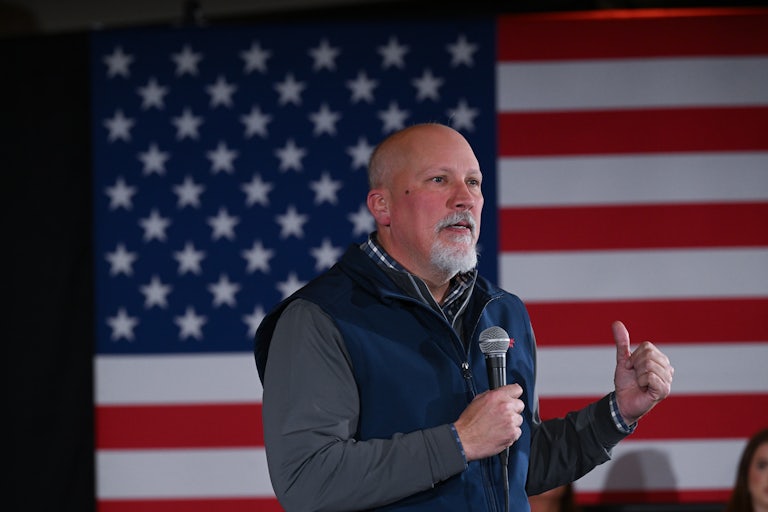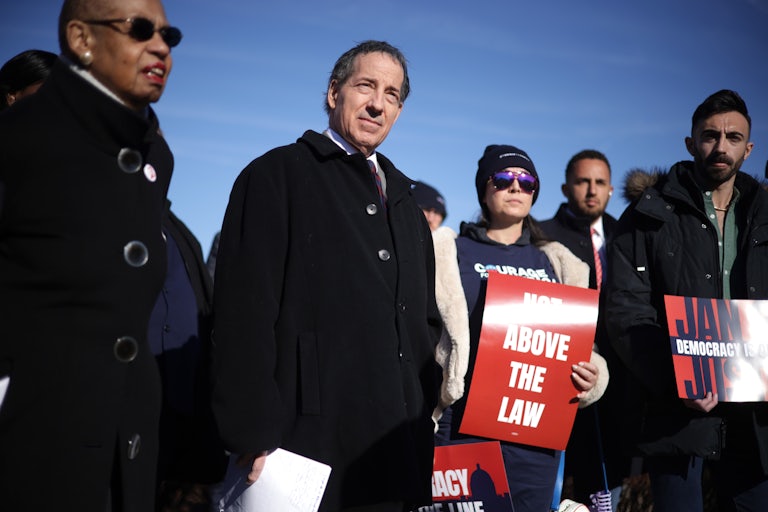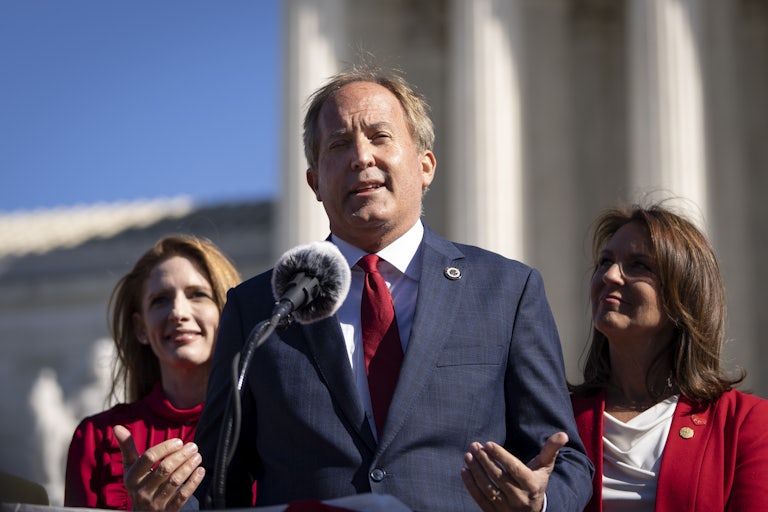The Corporate Crooks Who Got Caught Stealing Workers’ Wages
Investigative reporters exposed these bad bosses, and now comes the hammer of the law.

The first few weeks of this young year have only resurfaced an old problem: the continuing economic havoc that’s roiling the journalism industry. Hundreds of positions have been cut at venerable institutions like the Los Angeles Times and The Wall Street Journal. Start-up concern The Messenger eliminated itself from existence, leaving behind scorched earth and recriminations. This week, TNR’s Ellie Quinlan Houghtaling dove into this rot and found much of it coming from the top, with a plutocratic ownership class that’s driving good businesses into the ground on the backs of poor choices and bad ideas.
Just about everyone in this business has had some brush with the employment grim reaper—or is glancing over their shoulders in fear of the next encounter. But every once in a while, we catch sight of the ways that journalism, with a little bit of stability and good decisions from the top, can still make a huge difference in the lives of ordinary people. And this week, we can celebrate one such example in the state of New York, where some good old shoe-leather reporting has helped lawmakers craft a new bill to crack down on one of the most costly financial crimes we face: organized corporate wage theft.
Back in September, I highlighted a blockbuster report from ProPublica, who, working in a partnership with Documented New York, dug through federal and state databases and uncovered a staggering degree of wage theft: From 2017 to 2021, “more than $203 million in wages had been stolen from about 127,000 workers in New York.” While it is an inexact science to compare one state to another in this regard, ProPublica reported that its “analysis of cases reported to the U.S. Department of Labor and substantiated by federal investigators shows that New York ranked eighth highest in the amount of back wages owed per worker.”
But the best thing about all that reporting is that it’s been put to very good use. As ProPublica reported this week, New York state lawmakers have proposed a battery of bills that will bring the hammer down on wage thieves by allowing state agencies to strip scofflaws of their ability to do business.
One bill, centered on the restaurant industry—where workers in New York had $52 million stolen from them between 2017 and 20201—would allow the “New York State Liquor Authority to suspend liquor licenses for bars and restaurants that the Department of Labor has determined owe more than $1,000 in back wages to their workers.” The second bill “would enable the Department of Labor to place a stop-work order on any business that has a wage theft claim of at least $1,000”; this has been an effective punishment in other cases. Finally, the third bill “allows the New York State Department of Taxation and Finance to suspend a business’s certificate of authority—which allows it to collect sales tax and conduct business—in cases where wage theft exceeds $1,000.”
Anyone who runs afoul of these new laws can get themselves off the hook using one neat trick: Pay up within 15 days! Otherwise, it’s a pretty severe punishment. But it’s one that fits a truly heinous crime, and if the past is any guide, wage thieves have prospered because of the way the law too often doles out mere slaps on the wrist.
A Popular Information report from January explains that this has been what’s missing: While the Department of Labor can penalize wage thieves, it is only empowered to impose civil penalties against repeat offenders or when it finds that the wage theft was “willful.” Consequently, penalties are only “imposed 41 percent of the time.” And when they are imposed, they’re rarely stiff enough to trouble large firms: “The maximum civil penalty is $2,374 for each violation. In contrast, in Australia, the penalty for wage theft is up to $630,000 per violation.” That these new laws have actual teeth is a big improvement.
Back when I first wrote about the scourge of wage theft, I focused on the way the media industry was dropping the ball by elevating shoplifting and organized retail theft to national panic status. This feeding frenzy over penny-ante crime—one estimate put the real cost of the shoplifting wave at “seven cents per 100 dollars in losses”—was often promulgated through too-good-to-check stories that fell apart under the slightest scrutiny. Wage theft, by contrast, is a massive crime: A 2014 study from the Economic Policy Institute found that wage theft “costs American workers as much as $50 billion a year.” It deserves massive attention.
In terms of how the media has treated both issues, this is a Goofus and Gallant–style comparison. All the shoplifting coverage in the world has produced little more than bogus stories and reactionary fearmongering over crime. ProPublica demonstrated how better journalistic choices lead to an informed public and impact in the form of laws that will help solve a truly rampant problem and actually help ordinary people.
It also earned a ringing endorsement from state Senator Jessica Ramos, a co-sponsor of the aforementioned bills: “We knew from our conversations with labor and from our constituent service caseload that wage theft is a chronic problem,” she said. “We did not have the data to understand the scale of the issue in New York state until the ProPublica and Documented series came out last year.” It goes to show that journalism still works when it’s uncoupled from idiot bosses.
This article first appeared in Power Mad, a weekly TNR newsletter authored by deputy editor Jason Linkins. Sign up here.








